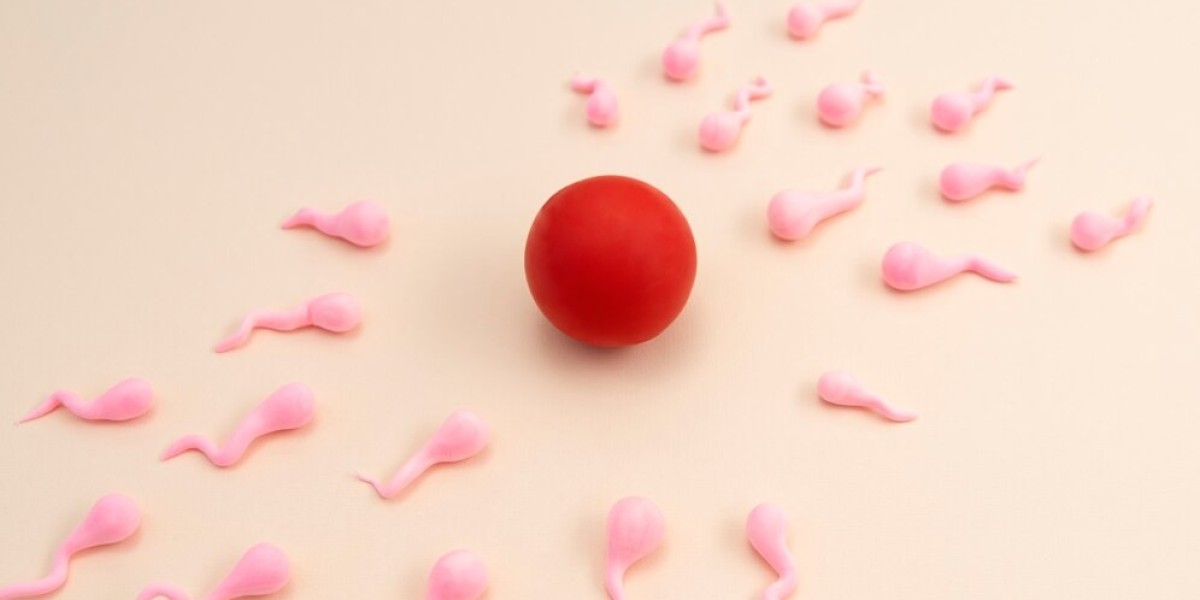If you've noticed a slippery, stretchy discharge after your period, you may be wondering if it's likely egg white discharge, and you're not alone in noticing it. Many women experience this at different points in their menstrual cycle. Understanding egg white discharge after your period can help you gain better insight into your reproductive health. In this article, we'll explain what egg white discharge is, why it happens, and how it relates to your menstrual cycle, fertility, and overall health.
What Is Egg White Discharge?
Egg white discharge is a type of cervical mucus that is clear, stretchy, and resembles the texture of egg whites. It’s produced during the menstrual cycle, typically around the time of ovulation. This discharge is your body’s natural way of preparing for potential pregnancy, as it helps sperm travel more easily through the cervix. It’s also an important indicator of fertility. Many women notice this discharge as a sign that they are most fertile.
When Does Egg White Discharge Occur in the Menstrual Cycle?
Egg white discharge generally occurs just before ovulation, which is around the middle of your menstrual cycle. It typically appears after your period ends and lasts until ovulation happens. This mucus is a clear sign that your body is preparing for the release of an egg. As estrogen levels rise in the follicular phase of the cycle, cervical mucus becomes more slippery and stretchy. Timing this discharge is key for women tracking fertility for conception.
Why Does Egg White Discharge Happen After Your Period?
After your period, the hormonal balance in your body begins to shift. Estrogen levels rise, stimulating the cervix to produce more cervical mucus, which eventually becomes egg-white-like in texture. This discharge is nature’s way of creating a favorable environment for sperm, facilitating their movement through the cervix to meet the egg. It’s a sign that your body is gearing up for ovulation and, thus, potential pregnancy.
How to Identify Egg White Discharge
Egg white discharge is easily identifiable due to its clear, slippery, and stretchy texture. It looks and feels similar to egg whites, and you can often stretch it between your fingers without it breaking. The consistency is a key indicator of fertility, as it allows sperm to travel smoothly through the cervix. It’s different from other types of discharge in both texture and appearance, so with practice, you can easily spot it during your cycle.
The Role of Egg White Discharge in Fertility
Egg white discharge plays a crucial role in fertility. Its slippery, stretchy consistency makes it easier for sperm to swim through the cervix and up into the fallopian tubes, where they may meet an egg. This type of discharge appears during your fertile window, the days leading up to ovulation. By tracking egg white discharge, you can identify the best time for conception. It’s nature’s way of signaling that you’re most likely to get pregnant if you have intercourse during this time.
Is Egg White Discharge Normal After Your Period?
Yes, egg white discharge is completely normal and a natural part of the menstrual cycle. It typically occurs after your period ends, signaling that your body is preparing for ovulation. This discharge is a sign that your body is functioning as it should. For most women, it’s a healthy, common occurrence that signals fertility. However, if the discharge is accompanied by unusual symptoms, such as discomfort or foul odor, it may be worth discussing with a healthcare provider.
What Causes Egg White Discharge After Your Period?
Egg white discharge is caused by hormonal changes that occur after your period. As estrogen levels rise in preparation for ovulation, the cervix produces more mucus. This mucus starts off thick and creamy but becomes clear and stretchy as ovulation approaches. The discharge helps sperm travel more easily, increasing the chances of conception. These hormonal fluctuations are natural and part of the body's reproductive cycle.
How Long Does Egg White Discharge Last?
Egg white discharge typically lasts for a few days, usually around 2–4 days leading up to ovulation. The amount of discharge can vary from cycle to cycle and from person to person. It may start as a small amount and then increase in volume as ovulation gets closer. Once ovulation is complete, the discharge usually decreases and changes in texture, often becoming thicker or creamy again. The timing and duration of egg white discharge can help women pinpoint their most fertile days.
Egg White Discharge and Pregnancy: Is There a Connection?
Egg white discharge itself does not indicate pregnancy, but it is an important signal that you are in your fertile window, which increases the chances of conception. After ovulation, if sperm meets an egg, it may result in pregnancy. However, it’s important to note that egg white discharge only means fertility is present, not pregnancy. Some women may also experience similar discharge in early pregnancy, but this is a separate occurrence and not directly linked to ovulation.
When Should You Be Concerned About Egg White Discharge?
Egg white discharge is generally harmless, but there are certain signs that could indicate a problem. If the discharge is accompanied by a foul odor, unusual color (like yellow or green), itching, or pain, it may suggest an infection or other medical issue. It’s also important to seek medical advice if the discharge becomes excessively heavy or persists for longer than usual. In such cases, consulting a doctor will help ensure there are no underlying health concerns.
Conclusion
Egg white discharge is a normal and essential part of the menstrual cycle, signaling that your body is preparing for ovulation and potentially for pregnancy. While it’s generally not something to worry about, paying attention to your body's changes and understanding when this discharge occurs can give you valuable insights into your fertility and overall reproductive health. If you notice any unusual symptoms, don’t hesitate to seek medical advice.








